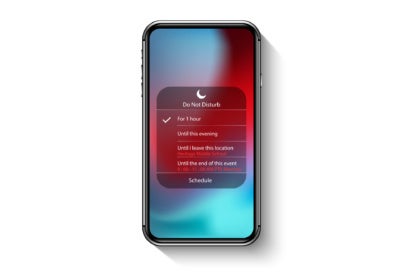![]() “I have a 24/7 phone number,” Charles Perry brags with his wide, easy smile. “No matter who you are, anytime you call me, day or night – I’m there for you.”
“I have a 24/7 phone number,” Charles Perry brags with his wide, easy smile. “No matter who you are, anytime you call me, day or night – I’m there for you.”
We at Weave have been touring the country learning about what motivates some of America’s very best people. They are the people who hold communities together, who rebuild after tragedy, who reach out when you’re alone and think no one knows. As you might imagine, we’ve run into some incredibly inspiring people. I was particularly moved by my encounter with Charles Perry, a Chicago-based convicted felon who spent almost 20 years in prison and now spends his days trying to prevent young men like him from walking into the same fate. He leaves his phone on so that when any young man or family member calls in need, he can respond immediately. He seems totally comfortable with who he is and what he’s living for.
There’s a lot to say about Perry, but one thing that happens when you are around someone like that is that you want to figure out how to be like them. I tried to isolate little things Perry does, small steps one could start with, and one of the most distinctive is his 24/7 phone number.
I’m not as available as Perry, but I do have something I use at night that I call my moon list.

iPhones have a feature called “Do Not Disturb,” with a little moon as a symbol, and you can set your phone such that all incoming calls or texts are silenced except those from people on your “favorites” list.
Charles Perry made me wonder: who is on my moon list? And what does that say about me, and the state of relationships in my life?
I first started using moon in 2015, when I was seriously injured in krav maga class. Someone called my best friend while I was being loaded into the ambulance. When Kristin arrived at the ER I learned I had gotten very lucky: we called her in the 10-minute window between when she got home from work and when she went dancing sans phone. This felt scary, so I found moon because I wanted her to be available to me any time crisis struck.
I try to pay this forward. A friend is there who recently broke up with her boyfriend. My friends cycle onto the list when they’re going through something – a death in the family, a breakup, job loss. A few weeks or months later I take them off again, and we return to our regular rhythms of distance and connection.
There are the professional listings – my boss and the president of an organization for which I serve on the board. There are the people who are noticeably not on the list, but for the most part I feel good about the boundaries I’ve implicitly chosen.
The list contains about twenty people total, and the big chunk of unexpected names is from my volunteer service with a rape crisis hotline. There are particular people I support for a set window of time each week, and I enter them into the moon list for that period of time. I love working on the hotline; it is the most meaningful thing I do. That said, I am only accountable to them for a set number of hours. They have access to the personal me, to my emotional self and resources – but I only give myself to other people this wholly in a carefully controlled, titrated way. It strikes me that this is the most rewarding set of interactions I have, and I nonetheless put it them an iron container.
This little list is a proxy for my intimate life. I like most of what I see, but some of it gives me pause. I see how I try to give my personal self to others, but am too attached to control, too busy, to do so with real freedom and generosity, and that makes me sad. I admire the kind of giver Charles Perry is. I have a long way to go to become one, but I am determined to try.

